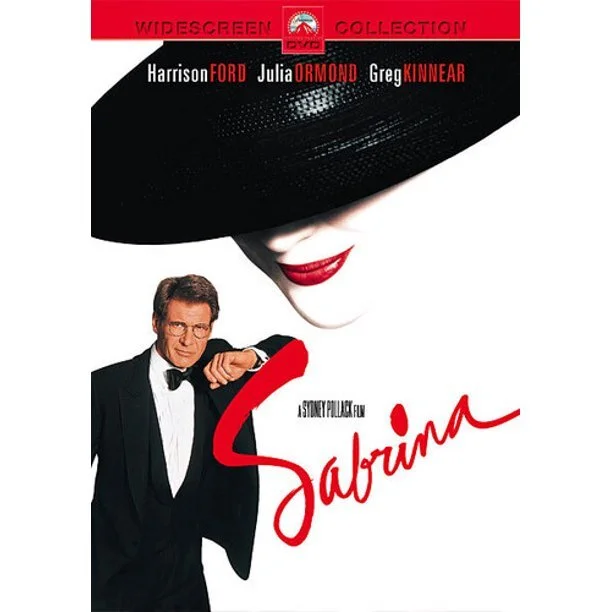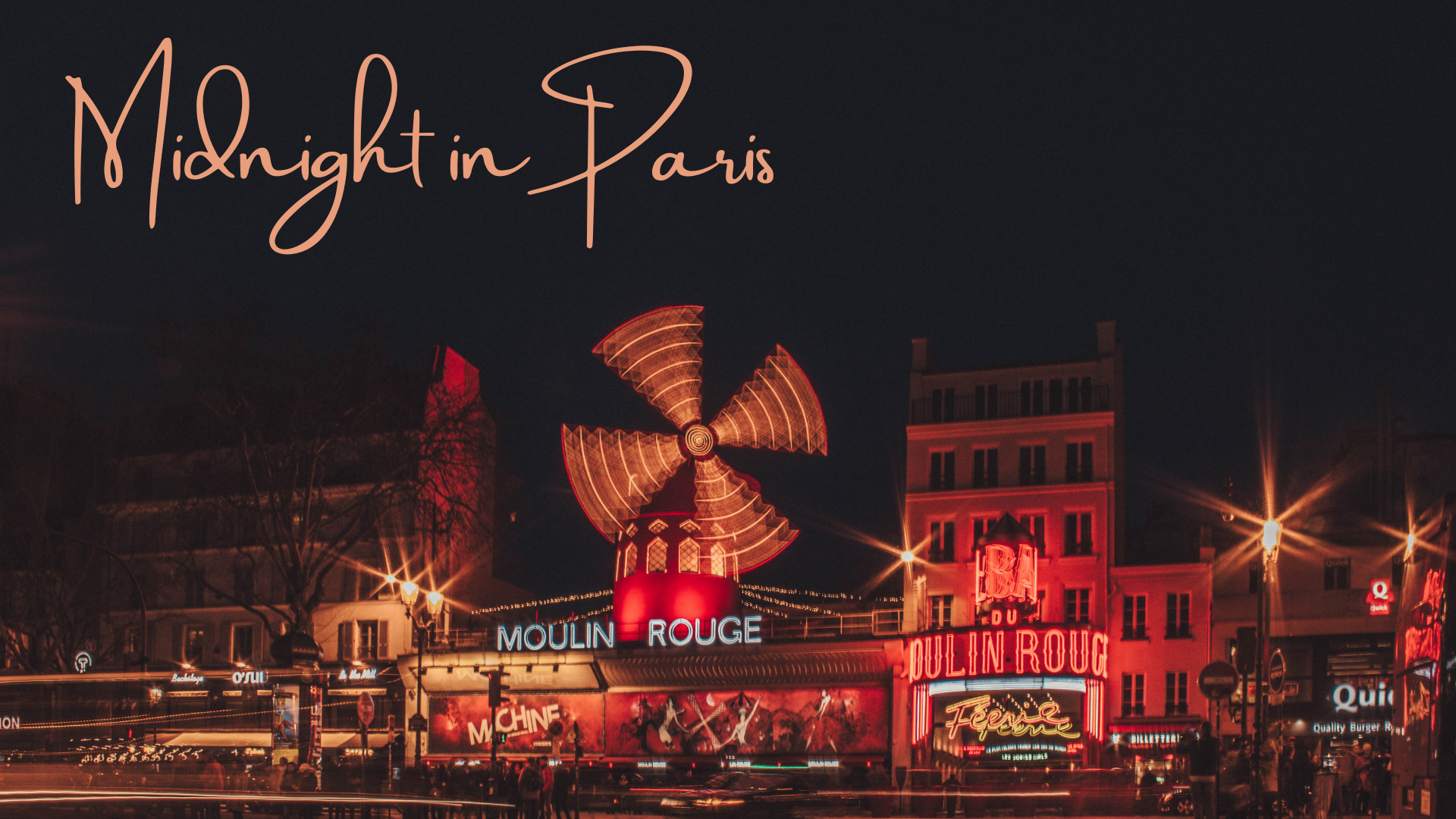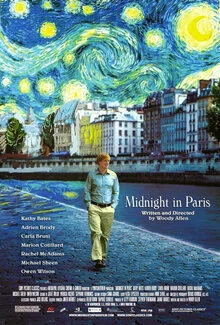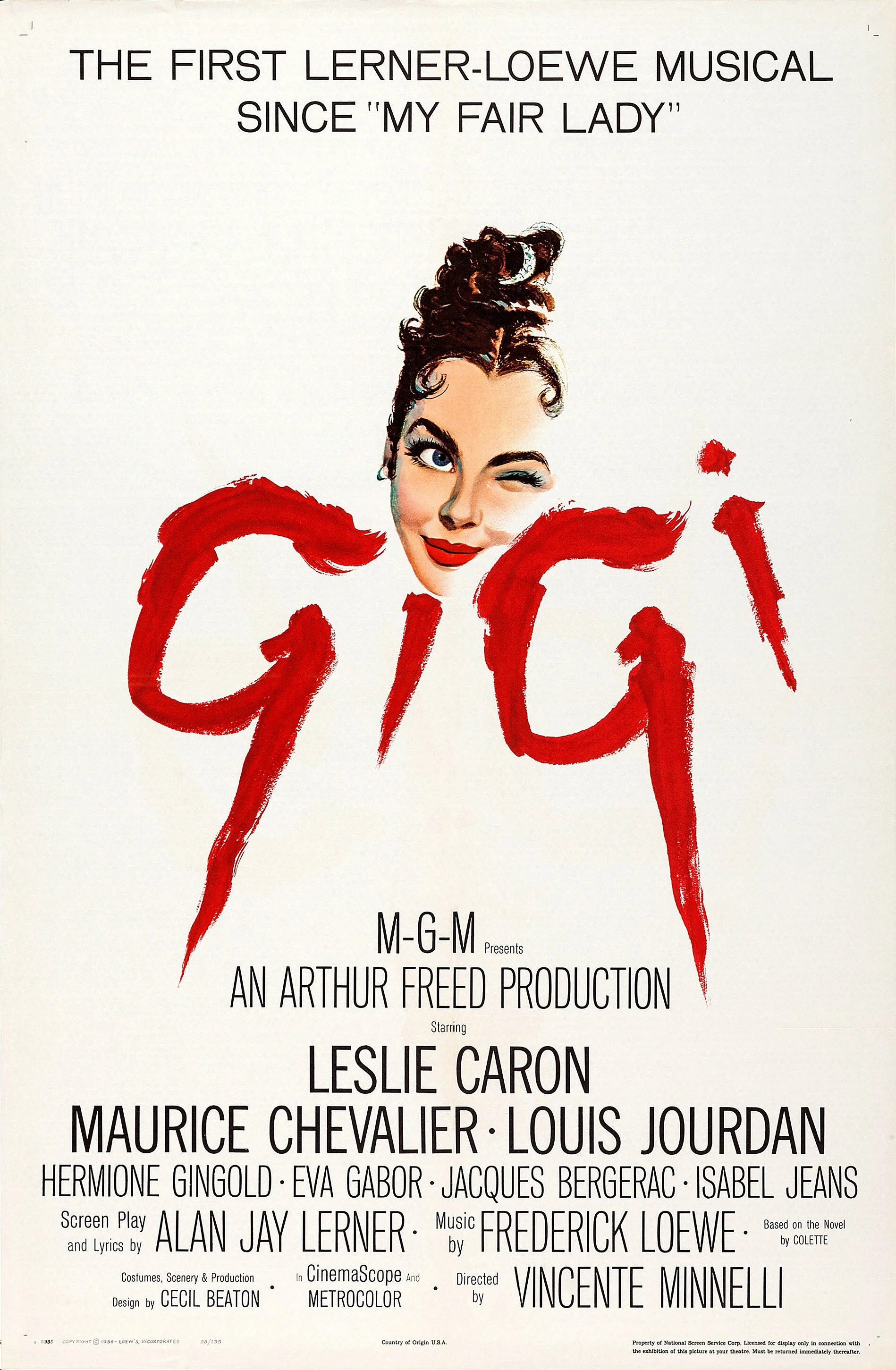Films to Love: Bonjour, Paris
It’s a well known thing that here at Whiskers on Kittens, we love the Great American Songbook. And none other than George and Ira Gershwin deserve to be included in that prestigious collection. It stands to reason then that when they write a lyric, we all should pay attention to it.
For the feature film Funny Face starring Fred Astaire and Audrey Hepburn, the Gershwin’s wrote Bonjour, Paris, an homage to the city as seen through the appreciative eyes of a tourist. As I learned keenly since the birth of my son, you develop a new appreciation of things when you see then anew through the eyes of someone else. The films that I’m showcasing today all revolve around the City of Lights, but even better, they take us on a journey through Paris through the eyes of someone who is experiencing it afresh.
“I want to see the den of thinking men
Like Jean-Paul Sartre.
I must philosophise with all the guys
Around Montmartre and Montparnasse.
I’m strictly tourist
But I couldn’t care less.
When they parlez-vous me
Then I gotta confess.
That’s for me
Bonjour, Paris!”
There’s a modern misconception concerning older films. For some reason these films are thought to lack sophistication whether in philosophical or intellectual thought. Certainly they are believed to be entirely bereft of any references to or acceptance of avant garde lifestyles. However, the more I revisit older films, the more I see fantastic screenplays that weave all of these elements into them. Perhaps they are not hitting the viewer over the head, but they are there, quite obviously, for those who are watching. And, perhaps, because of the gentle manner in which these aspects are handled, viewers are able not only to entertain alternative ideas, but even come to an understanding and/or acceptance thereof.
One such film that taps into some of these things is Funny Face. Considering that it is a rather lighthearted musical, I find this dichotomy fabulous. Furthermore, as a lover of art history, the continual allusions to the dynamic creative team of Harper’s Bazaar from the 1930s-1960s of Carmel Snow, Alexey Brodovitch, and Richard Avedon just tickles me. (I’ve written more extensively about the movie as well as Harper’s Bazaar in On Camera: Brodovitch and Vermeer and Films to Love: Art for Film’s Sake.)
Fred Astaire plays Dick Avery, the fashion photographer for Quality magazine. On assignment doing a photoshoot at a Greenwich Village bookshop named Embryo Concepts, he meets Jo Stockton, played by Audrey Hepburn. She’s a woman who disdains what he does for a living because she considers fashion, fashion magazines, and the fashion world at large to be shallow, unrealistic, and trite.
Jo is an intellectual woman more concerned with the modern philosophies of Jean Paul Sartre and Simon de Bouvoulier than she is about which couturier fashioned which gown. However, Dick is a quick one. He sees Jo’s potential. When his editor, Maggie (played by Kay Thompson) hatches an idea to put forward the Quality woman, he throws Jo in the ring for the title. Certainly she’s not the smashing chic photogenic model that so often is chosen, but she possesses something more- she has character, spirit, and intelligence. She’s the breath of fresh air that the magazine and the fashion world needs.
And there’s one angle Dick knows he can work to get Jo to agree to being a flesh and blood clothes hanger, and that’s the trip to Paris that is included for the woman who receives the title of Quality Woman. Sure, Jo would have to work as a model and be interviewed by countless magazines and debut an exclusive collection of haute couturier Paul Duval’s collection, but she would also have the opportunity to explore the existential, philosophical highways and byways of the Parisian cafes. Presented that way, Jo does agree, after making it perfectly clear that she’s not compromising her ethics or beliefs at all, but rather, being the Quality Woman is a means to an end.
Enter Paris. This film will take you to all the sights one would expect to see in Paree. Through Maggie’s eyes, you see the shops of Paris on the Rue Saint-Honore and the Rue de la Praix. With Dick, you’ll see the photo worthy portions of Paris from the Champs-Élysées to the Arc de Triumph. And with Jo, you’ll see the seedier parts of Paris, the cafes that cater to the philosophical nestled in Montmartre and Montparnasse. And, because you simply cannot see Paris without it, you’ll see the Eiffel Tower as it draws all three of them. Plus, there’s fabulous clothes, fun photo shoots, interesting conversations, and sweet conclusions.
This film is delightful. The music is Gershwin, so you can’t help but adore it. The choreography is quirky at times, but also includes a hefty dose of Fred Astaire, so it’s excellent. And then there is Audrey. She’s iconic in whatever role she takes. However, in this one, I happen to love her dearly. She’s a strong, independent woman who takes her own life in her in hands. She has very lofty ideals, and while some of them I don’t always agree with, because she always endeavors to frame her opinions with supreme kindness, they don’t bother me. Truly, this movie is an enjoyment you should not miss.
“I met myself in Paris”
Hollywood has given us two versions of Sabrina, one staring Audrey Hepburn and Humphrey Bogart, and the other starring Julia Ormand and Harrison Ford. While Audrey Hepburn’s Sabrina is iconic, the film I’m focusing on today is the latter version with Ormand and Ford.
One of the things the newer version has going for it is the fact that it’s a longer film. Since it is, there’s more time allotted for Sabrina in Paris. We get to see how she starts out, awkward and sullen, out of place no matter where she is, whether it’s the Hamptons or Paris. But, as time goes on, as people befriend her, as she grows in confidence, she meets herself. In Paris. With this solid footing, we get to dive into the slow burn romance between Linus and Sabrina.
Paris plays a very important part in the development of Sabrina. Her philosophy is shaped there and it is so indelibly girded within her that she transforms a man who was seemingly set in his ways. He was known as the world’s only living heart donor. Yet, in her quiet, truthful way, she peels back his crusty, forbidding exterior to find the man beneath, and through her, he sees the world anew.
This version is subtle and quiet, unfolding at an unhurried pace. I appreciate it for that reason. And paired with the soundtrack, this film slips into a classic vein, making one feel as though she is watching a movie that was made thirty or forty years prior. Of course, because of the inclusion of modern technology, we don’t forget that it’s more current, but it does embrace those tenets that the great directors of old, like George Cukor or Vincente Minnelli, used.
“We yearn for tomorrow and the progress that it represents. But yesterday was once tomorrow, and where was progress in it? Or we yearn for yesterday, and what was or what might have been. But as we are yearning, the present is becoming the past, so the past is nothing but our yearning for second chances. ”
Whether you care for the man personally or not, Woody Allen is a tour de force when it comes to conveying charming vignettes weaving the past and the present together. Midnight in Paris is one of his later offerings and it is a delightful romp through the gorgeous city of Paris through the eyes of a sentimental writer from Hollywood.
There are many reasons why this movie is a must. Obviously, it takes place in Paris, but even better, it’s set to the most delightful jazz. Bistro jazz. You know the sort. (Woody Allen has fantastic taste in music, by the by. His films are homages to the brilliancy of the Great American Songbook.)
Then there are all the literary characters that find their way into the narrative. Not just literary either. Picasso pops up in this movie. And Salvador Dali- who has a strange fixation with rhinoceroses. Man Ray. Zelda Fitzgerald. All Gilded Jazz Age splendors. My favorite would have to be Ernest Hemingway. I’m not even going to try to describe him. I’m putting up two youtube videos so you can see why he’s so superb.
Midnight in Paris asks the question I’m sure we’ve all asked ourselves: what is your most ideal time period? If you could travel to one place and time, where and when would it be? For Gil, our Hollywood writer, the ideal time and place is 1920s Paris. The time of the Bright Young Things, when philosophers, writers, and artists drank themselves into genius in quiet cafes dotted all around the City of Lights. Gil idolizes F. Scott Fitzgerald and Ernest Hemingway. So, imagine his surprise when on a midnight stroll through the city streets while on vacation he somehow slips backwards in time to the 1920s and comes face to face with these men. He enters Gertrude Stein’s salon and meets Picasso. He listens to Hemingway’s athletic prose first hand as the man recounts one story after another from his life and observations.
And he meets Adriana. She’s the muse that captivates him. But, while he tells her about the perfection of the time in which she lives, she tells him that he’s all wrong. The most perfect time is really La Belle Epoque.
What may be the masterpiece of this film is the fact that you get to experience Paris in three different time periods. You experience Maxim’s in La Belle Epoque. You go to Cafe du Dome when Hemingway is there in the 1920s. And, of course, you go to the outdoor markets and walk the beautiful bridges of Paris with Gil in the modern era. Perhaps it’s one of the more perfect vacation ideas.
Like Sabrina, Midnight in Paris is a subtle film. Its message is simple and understated, but important. And we, as viewers, enjoy the journey to truth and understanding all the more because the backdrop is Paris.
“Youth is happy because it has the capacity to see beauty. Anyone who keeps the ability to see beauty never grows old.”
Speaking of La Belle Epoque, the final offering for this post is Gigi, the Lerner and Loewe musical adaptation of Colette’s work, Gigi. Vincente Minnelli helms this masterpiece. Leslie Caron plays the effervescent Gigi who transforms the lives of all those who inhabit her world. Most notably that of Gaston, who is the subject of much of High Society gossip in Paris as he’s had many colorful relationships with women.
Unlike Gigi who simply brims with excitement at the thought of what adventure each new day holds, Gaston suffers from acute ennui. He’s seen it all, he’s done it all, and he’s been it all. The world is a bore. Even his ever cheerful uncle Honoré Lachaille can’t quite jolly him out of it. Remarkably, there’s one person in the world who can: Gigi. Through her youthful, exuberant eyes, he finds joy in the world once again.
However, and much to his personal consternation, once he discovers how important to him she is, her grandmother makes a startling observation. Gigi is no longer the young girl who he used to amuse himself with by bringing her chocolates and teaching her to play cards. No. She’s become a young woman and must comport herself as a proper young woman. To be seen so evidently in his company, with the reputation he possesses, and the attention that he naturally gets being a man of such preeminence in society, would tarnish Gigi’s fragile reputation.
Gaston is at a crossroads as is Gigi herself. What’s to be done? Will he take Gigi as his mistress as was perfectly acceptable in his strata of society? Is he to abandon her company altogether? Or, perhaps, he might entertain an even more permanent solution?
So much of this film is a must. Truly. The music is classic. The performances are all tour de forces. The scenery is gorgeous. And the costumes are garish, gaudy, and fantastic. I also happen to enjoy the tributes made to the places that epitomize La Belle Epoque movement, aka Maxims.
This movie moves so well. It’s full of life, the total scope of it- the highs, the lows, the hypocrisies, the truths, the happy, the sad, and, in the end, the wonderful.
Each of these movies offers a unique take on Paris. Oddly enough, having been there and enjoyed it immensely, they each engender a sense of nostalgia in me. I hope they do the same for you.
What movies do you love that take place in Paris?




















































